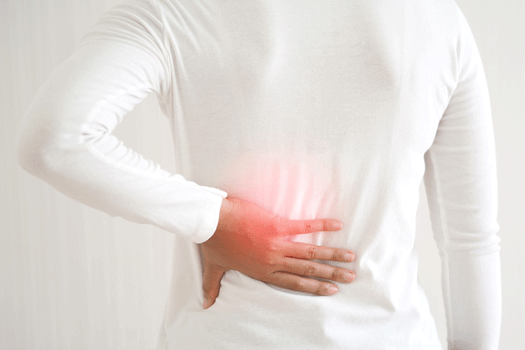
Herniated discs are fairly common but often treatable or manageable with conservative treatments. One of these is massage therapy. A deep tissue massage is one of the forms of manual manipulation that could provide welcome relief if you have discomfort stemming from a herniated disc. This article discusses the ways massage may be beneficial if you have spinal disc issues.
Deep Tissue Massage Can Help
There are hundreds of options with massage, with the main difference being how pressure is applied to the target area. Generally used to treat soft tissue and sports-related injuries, a deep tissue massage involves pressure strategically applied in a way that promotes healing and tension relief. This is usually done with the palms and fingers, although the elbows and forearms may also be used to apply pressure. Herniated disc pain may steadily decline with deep tissue massages due to related benefits that include:
• Reduced tissue inflammation
• Increased blood flow
• Reduced muscle tension
• Improved delivery of disc-friendly nutrients
While similar to a Swedish massage, a deep tissue massage is unique because it targets deeper muscles. This has the potential to be beneficial for herniated disc symptoms because these are the muscles closer to the spine. By focusing on these muscles, stress on the affected disc may be eased, resulting in reduced nerve irritation.
Other Forms of Manual Manipulation May Also Be Effective
A massage doesn't necessarily "heal" a herniated disc, but you may experience noticeable relief because of the way surrounding tissues are affected. However, some other manual forms of manipulation may push protruding disc material back inside the outer layer of the disc. There are also times when a herniated disc may move in a way that takes pressure off surrounding nerves because of how tissues are manipulated. In addition to massage therapy, you may experience meaningful relief with manual forms of manipulation that include:
• Chiropractic adjustments
• Nonsurgical decompression done on a special adjustable table
• Myofascial release that focuses on connective tissues
Massage Therapy Is Often Part of a Broader Treatment Plan
Each individual will have differing experiences with massage therapy and other treatments often recommended for a herniated disc. For many patients, manual forms of manipulation are combined with other forms of physical therapy. This is done to enhance the overall results and target the affected area in different ways. In addition to massage therapy, you may benefit from a more well-rounded treatment plan that also includes:
• Therapeutic injections
• Exercises that target spine-supporting muscles
• Hot and cold therapy to further promote healing and ease inflammation
• Medication
Massage Therapy Should Be Combined with Healthy Lifestyle Adjustments
If you're not getting sufficient rest or watching your posture when you sit, stand, or sleep, you may not benefit as much as possible from massage therapy for a herniated disc. By making lifestyle adjustments of this nature and being mindful of your diet and exercise habits, you will increase your odds of seeing results that make a difference. However, talk to your doctor for advice more specific to your needs before considering massage therapy or any other treatments not involving surgery.
If you have a herniated disc that is not responding to conservative treatment, a discectomy may be discussed and potentially recommended. Although this is generally a very successful back surgery procedure, having a large hole in the outer ring of the disc more than doubles the risk of needing another operation. A new treatment, Barricaid, is a bone-anchored device that closes this hole, and 95 percent of Barricaid patients didn’t undergo a reoperation due to reherniation in a 2-year study timeframe. This treatment is done immediately following the discectomy—during the same operation—and does not require any additional incisions or time in the hospital.
If you have any questions about the Barricaid treatment, ask your doctor or contact us at 844-288-7474.
For full benefit/risk information, please visit: https://www.barricaid.com/instructions.


Comments